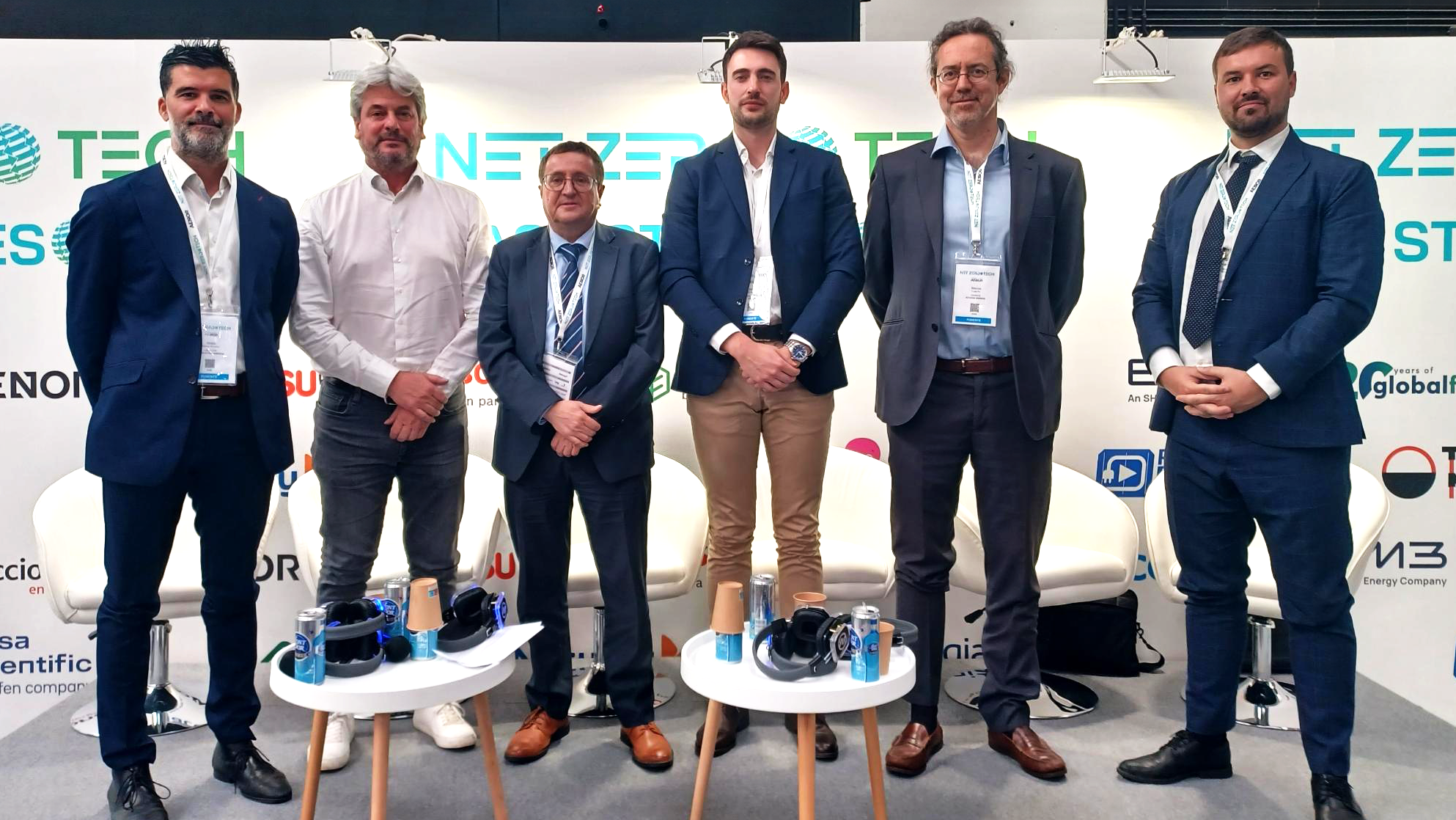Energy efficiency is becoming increasingly important for SMEs, which face decarbonization as a necessity imposed by both regulations and their own competitiveness. Some key factors for successfully achieving this include conducting a prior analysis of energy costs, obtaining professional advice, and developing specific solutions such as photovoltaic self-consumption systems, storage batteries, or circular economy projects like the one promoted by the Moià City Council.
This was highlighted in the roundtable “Decarbonization and SMEs,” organized by Foro Industria y Energía as part of the Net Zero Tech fair held recently in Barcelona. Albert Concepción, director of Foro Industria y Energía and moderator of the event, emphasized the importance of decarbonization for SMEs, stating that “apart from their own costs, they need to adapt to meet the standards required by their client companies.” Concepción noted that “considering SMEs account for 99% of business activity in the EU, the energy transition process will not end until the last SME is decarbonized.”
In this context, Sergio Maynar, director of the energy service provider Neoelectra Energía, pointed out that “an SME has the same need to optimize energy costs as a large company; the difference lies in the difficulty of achieving it,” and highlighted that making decisions to optimize energy costs “can lead to significant savings.”
According to Maynar, diversifying the energy tariff and seeking specialized advice are two basic elements in the energy management of SMEs, especially considering that “the energy transition will impose a cost on SMEs when ETS2 is implemented in 2027, which will require companies to enter the emissions market.”
Support for energy storage
“The high penetration of renewable energies has brought price volatility, making storage systems necessary, even for companies that have already developed self-consumption solutions,” points out Martin Hörndler, head of Operation and Maintenance for Self-consumption and Distributed Generation at Levitec.
The expert noted that storage “is already a competitive technology,” and that “making renewable energy manageable is now a basic element.” Photovoltaic self-consumption solutions, which more and more companies are installing, can benefit from their advantages, “taking advantage of surpluses and increasing their hours of independence from the electrical grid with renewable sources,” he added.
Knowledge for management
Knowing energy costs and their origins is, according to Marcos Fusté Pin, Business Development Manager at Acciona Energía, “the first step” to improving energy management. The expert pointed out the energy saving potential that SMEs have, “which also have the ability to monetize this saving.”
Fuste explained Acciona’s models for supporting SMEs’ energy management, highlighting the ESE model, one key aspect of which is supporting the replacement of high-energy-consuming equipment. “We are not talking about optimizing business processes, but about energy consumption,” he clarified. “We don’t intend to tell the company what to do but allow it to focus on what it does best by delegating energy services.”
Similarly, Ignacio Bañeres Escribano, Environmental Sustainability Manager at AENOR, noted that “what cannot be measured cannot be controlled, and therefore cannot be managed or improved,” stressing the importance of knowing the current situation. Starting from this basis, the expert outlined three fundamental phases in how AENOR can help SMEs decarbonize: verifying their CO2 emissions calculations, finding ways to reduce them, and finally compensating for those that cannot be eliminated, under the premise of carbon neutrality.
In the process of SME decarbonization, “certifications can be very helpful,” Bañeres pointed out. “A certification gives the SME the visibility of doing things right, and the certifying entity can also guide it on the path to follow.”
The importance of public-private collaboration
The event included a practical case of circular economy carried out by a public administration, specifically the Moià City Council (Barcelona), which is developing a waste recovery project through the construction of a 1,200 KW biogas plant. This plant will produce electricity and heat for all public facilities in the town.
“This project will efficiently manage slurry, sewage sludge, and food waste from the industry, all of which will go to the biomass digester,” explained Dionís Guiteras, the town’s mayor. The project also addresses the water challenge, a significant issue in the region, as the plant will recover between 20,000 and 30,000 liters of regenerated water. The resulting digestate becomes an excellent fertilizer for agriculture, thus closing the cycle. The initiative “has been very well received by industrialists,” the mayor highlighted, as 20% of the plant’s energy will be used in the local industry.
“Public administrations must work to reduce costs without raising taxes for citizens,” Guiteras pointed out. “With this project, we save energy in public services and also improve urban waste management, which saves the town council 700,000 euros a year.”
The mayor of Moià clarified that the aim of this project “is not to be the landfill for the entire region but to be a model that can be replicated, scaled to the waste of each area. We intend to set an example.” Guiteras emphasized the importance of collaboration, both among companies and between the public and private sectors: “Understanding competition and administrations as partners is how the region, society, and businesses will advance,” he concluded.

